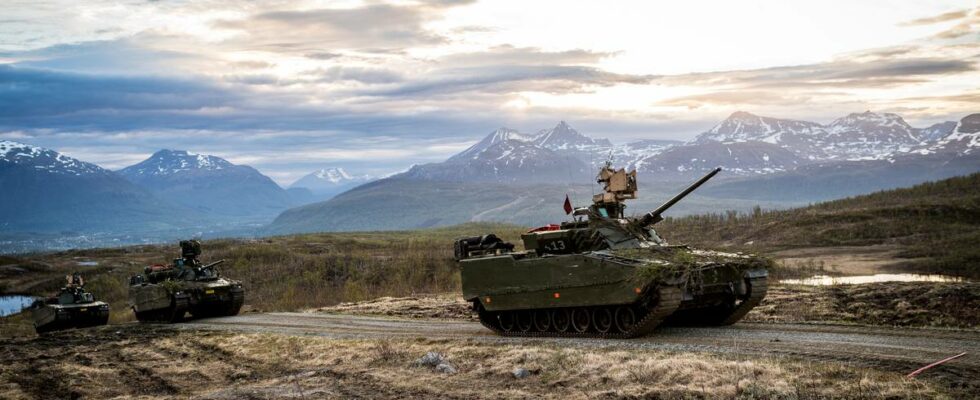– I think it is a disk bomb. It doesn’t help with a whip. People just want to quit and the situation will get much worse, says Toralf Heimdal, mayor of Bardu (Sp). Thus, the mayor of one of the country’s largest defense municipalities goes against his own party. The mayor of the defense municipality of Bardu, Toralf Heimdal, believes that the proposal for a separate party is a bombshell. Photo: Kari Anne Skoglund / news Fears mass exodus Heimdal believes the proposal from his own party is not well thought out, and would rather have other means to solve the personnel situation in northern Norway. – In today’s labor market, we must be attractive employers. To make that happen, we need to have good arrangements. The Bardu mayor believes compulsory residence would have been good in the 70s, when there was a strong demand for jobs. – But now it’s the opposite. The labor market is such that those who receive an obligation to live in the Armed Forces will almost certainly leave immediately, and look for a job in the civilian sector. It will work against its purpose, says Heimdal. Heimdal believes that military personnel must rather have arrangements that make it attractive to choose to live in the north themselves. Photo: Ole-Sverre Haugli / The Armed Forces / Ole-Sverre Haugli / The Armed Forces – What changes are needed to make it more attractive to live and work in the Armed Forces in the north? – Today there are different levels of pay for officers. Those who work in the Ministry of Defense have the highest salary. Those who currently work in the south have the highest salary. It should be valued more that you are in operational service, says Heimdal. Will provide supplements and housing support Heimdal points to other, concrete solutions. – We have to get incentive schemes. Where you first get a contingency allowance for working in the north, then you get an additional contingency allowance for settling in the north. In addition, Heimdal will have a scheme where mortgages are written down for defense employees in the north, and compare it with writing down student loans in Finnmark. Do you think compulsory residence in the Armed Forces should be introduced? Yes, that is the answer to the challenges! No, that makes it even more difficult! Don’t know, can go either way! Show result The mayor has already recorded the proposals to the Ministry of Defence. – Doesn’t the Central Party listen to its own party colleagues in the defense municipalities? – It has been quite a long time since we have talked about compulsory residence. The Center Party is very aware of my proposals, says Heimdal. In the long term, the mayor believes that it is important to train both commanders and officers in the north. – Because it is a mystery that people in the Armed Forces have not realized that there is a connection between where you have your education and where your education should have an effect. Now we have to have officers and commanders for the country, and then you also have to train in the north, says Heimdal. Martin Nymo, mayor of Målselv (H), wants measures other than compulsory residence. Photo: MALIN STRAUMSNES / news Don’t believe in coercion The Bardu mayor gets support from his fellow mayor in the neighboring municipality. – I don’t think the solution is to force someone or have a residence obligation to get people to move, says Martin Nymo, mayor of Målselv (H). He agrees with Heimdal’s proposal to rather reverse the incentive measures. – Now it’s almost like it pays to commute. And that will be wrong, says Nymo. – What can you as a large defense municipality do to help improve preparedness? – We as a municipality must make it attractive to move to us. We must have housing, workplaces and good growing conditions, says Nymo. Porsanger mayor Jo Inge Hesjevik believes compulsory residence is the wrong way to go. Photo: Lena Marja Myrskog Also in Porsanger, one of Finnmark’s largest defense municipalities, mayor Jo Inge Hesjevik (H) is critical. – I don’t think that starting to force defense employees to live in certain places is a good solution. He points out that you can have different places of employment almost from year to year, and that with compulsory residence there can therefore be a lot of moving with the family as well. – Children who constantly have to change school places do not fare as well as those who can go to the same place for a long time. So I can’t participate in duty, says Hesjevik. Venstres Grunde Almeland believes that compulsory residence can weaken the ability to defend oneself. Photo: William Jobling / news Political opposition The Center Party’s proposal has not been well received by the central opposition either. The Liberal Party believes that compulsory residence can weaken Norway’s ability to defend itself. – Forcing them to live in a place where they have no network or family, we believe will only make it more difficult to recruit and more difficult for people to stay in their jobs, says Grunde Almeland in Venstre. Conservative Mahmoud Farahmand fears the residence obligation will cause more people to resign. Photo: Lars Tore Endresen / news The right-wing party’s Mahmoud Farahmand is also concerned about the consequences of compulsory residence. – This may result in experienced and highly competent defense employees choosing to quit. Farahmand himself has worked and commuted in the Armed Forces, and believes that families cannot be expected to break up every five years to live where employees of the Armed Forces are ordered. – In a modern society, with two partners who both have careers, it is not possible, says Farahmand. Published 30.07.2024, at 15.16
ttn-69
– Skivebom – news Troms and Finnmark

